Text messages capture heartbreaking goodbyes of COVID-19 victims
Daughter: “Just wish I could see you in person.” Mother: “I wish that more than anything in the world right now.”
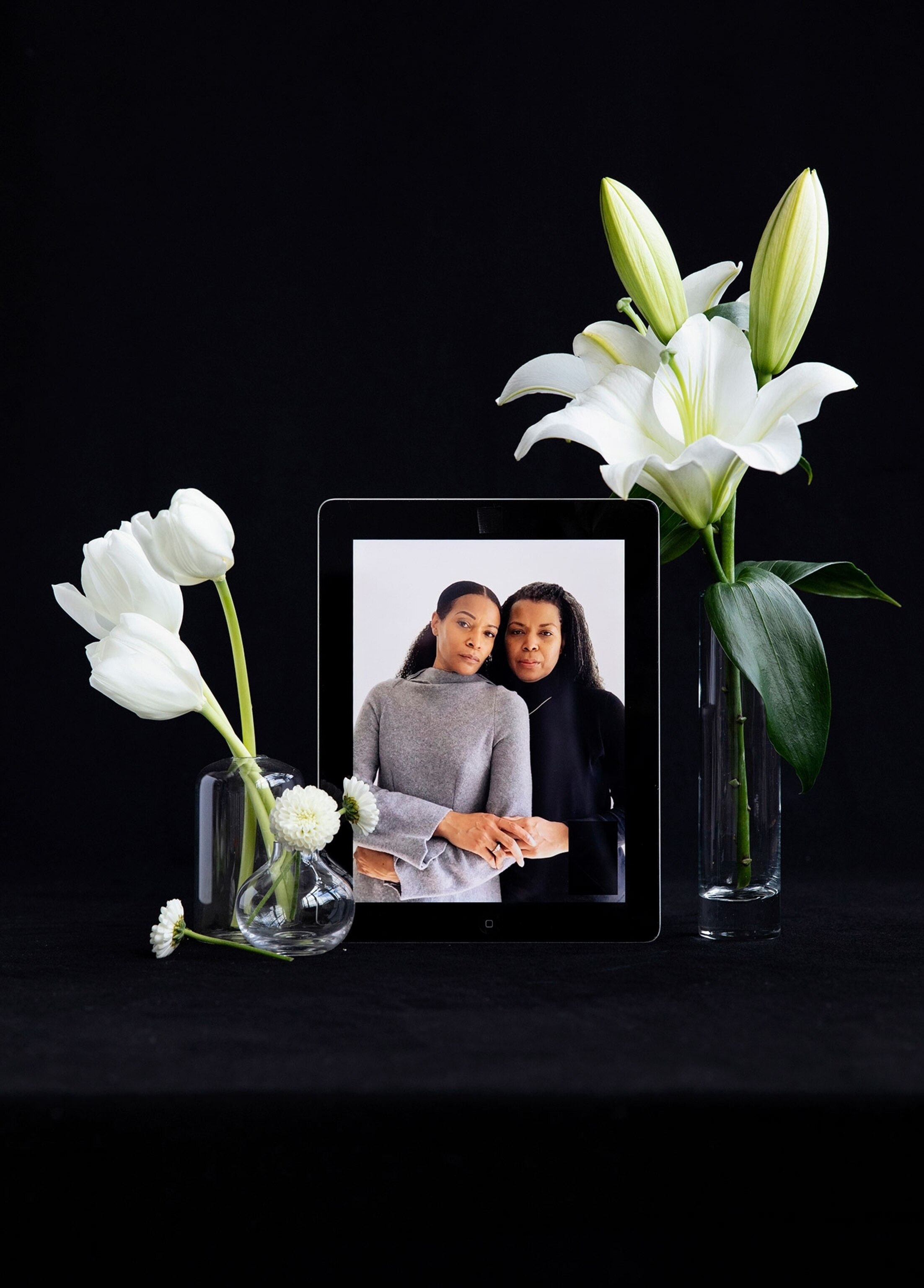
Nearly a year into the COVID-19 pandemic, almost 500,000 American families know firsthand the grief of losing a loved one, many in conditions that restrict bedside goodbyes. These circumstances—piled on top of the many unknowns of COVID-19—layer enormous pain, guilt, and grief on top of the already-traumatic process of saying goodbye to someone we love.
“We expect that we’re going to be able to communicate with our loved ones, to be there in times of tragedy,” says clinical psychologist Therese Rando, founder and director of the Institute for the Study and Treatment of Loss in Rhode Island.
The experience of being with someone in their dying moments deeply impacts the way people process trauma, Rando says. What does it mean to say goodbye from a distance—through a hazmat suit, via Zoom, or by text message? Six families that lost relatives to COVID-19 in 2020 share their stories, along with some of the text messages they exchanged in the final days of their loved ones’ lives.
Marco Reyes; Miami, Florida
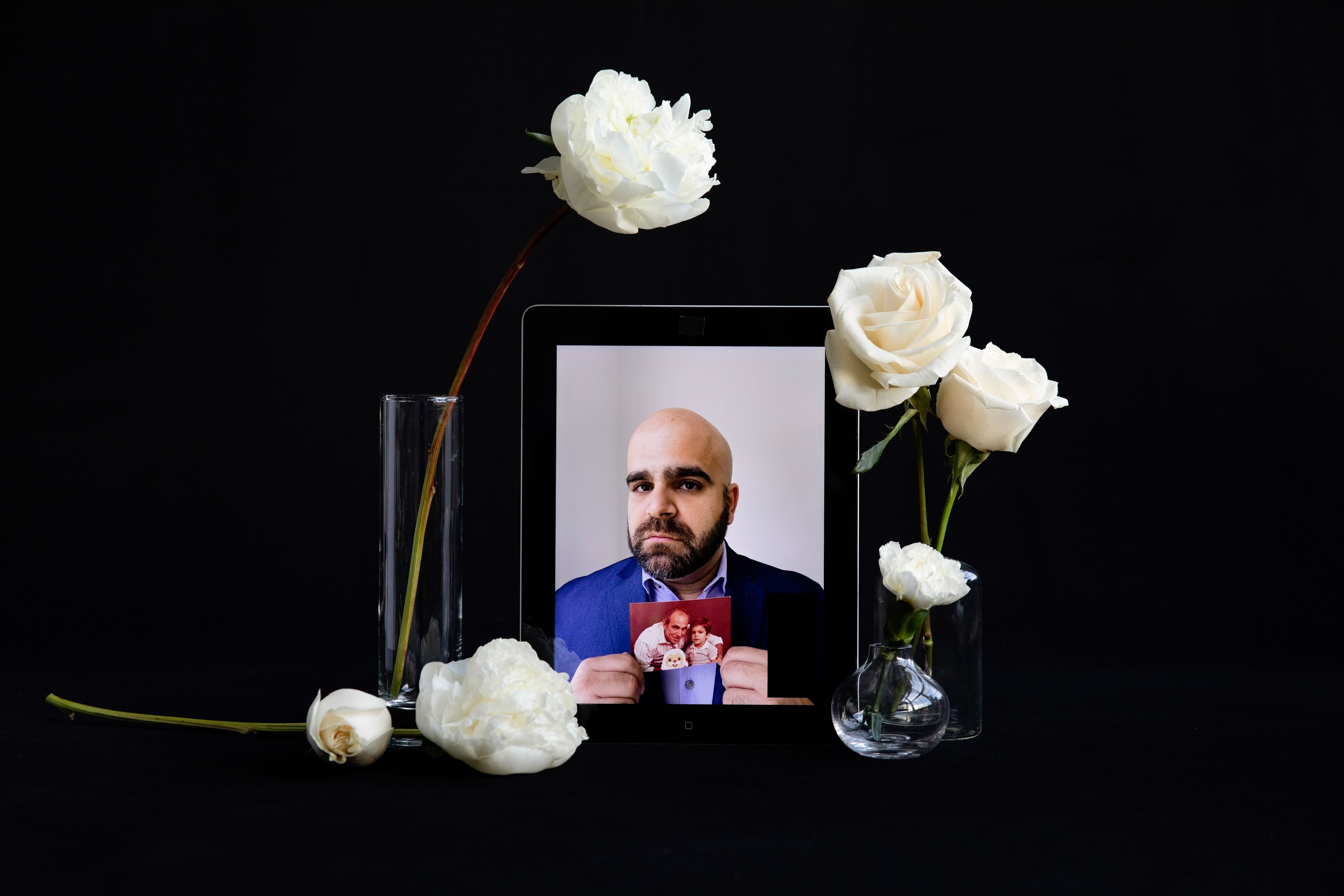
In early August, Marco Reyes received a call: His 84-year-old father, José, was having trouble breathing. He kept saying he was fine, but he wasn’t, Marco says. José, who immigrated to the U.S. from Cuba, after spending 12 years as a political prisoner, was independent and “old-school.”
Marco had last visited José on Father’s Day. They talked politics through their masks in José’s apartment in Little Havana. José started feeling sick in late July. As he awaited test results, he forbade his kids and grandkids from coming near him.
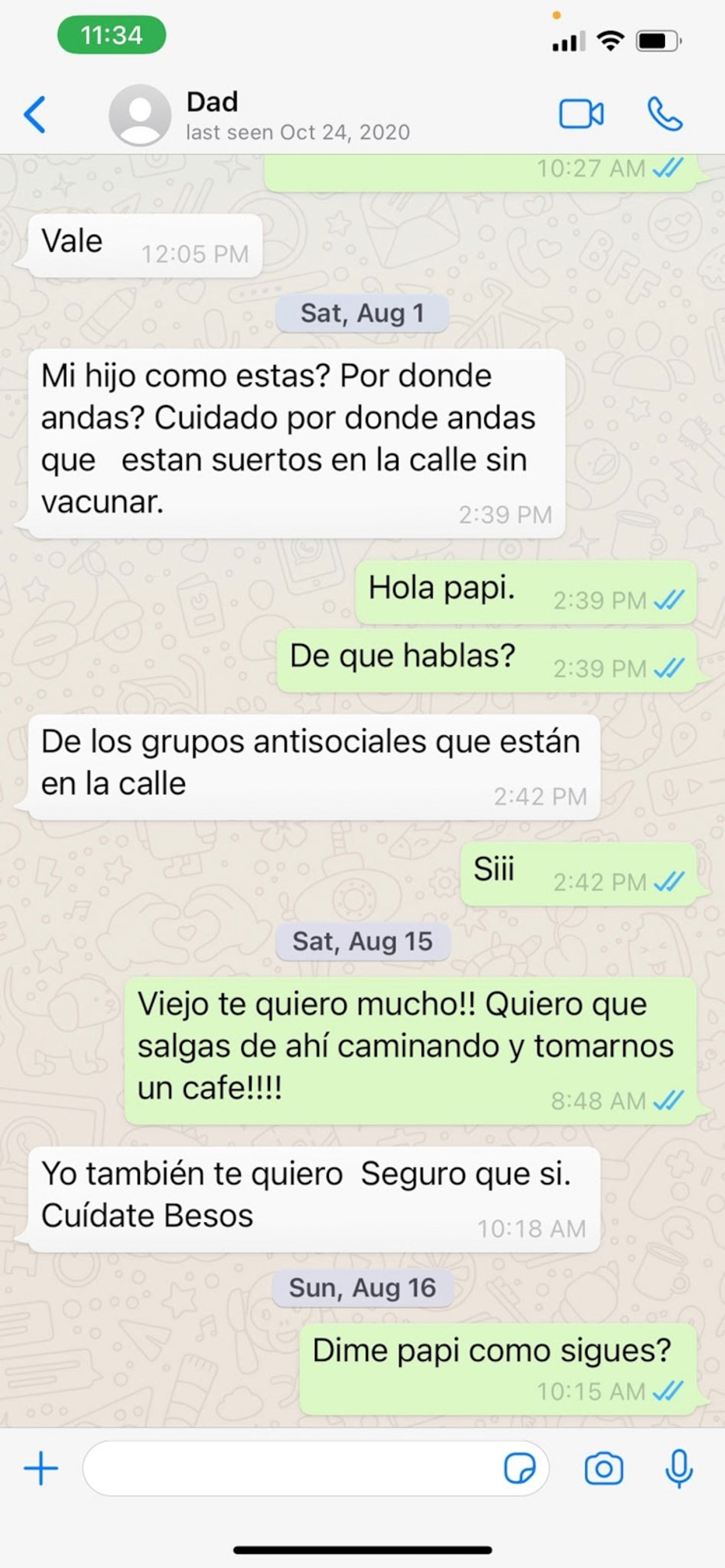
José went to the hospital. For two weeks, he fought. On August 15, Marco was video-chatting with his father, who said he was resting and feeling better on supplemental oxygen. After they hung up, Marco texted in Spanish, “Old man, I love you so much. I want to walk out of there with you and have a coffee together.” His dad replied: “I love you too. Surely, yes. Take care. Kisses.” Two days later, José called Marco. He said it hurt to speak, and that he was turning off his phone.
Days later, José went on a ventilator. He passed away on September 4.
Christiana Neazer; Rialto, California
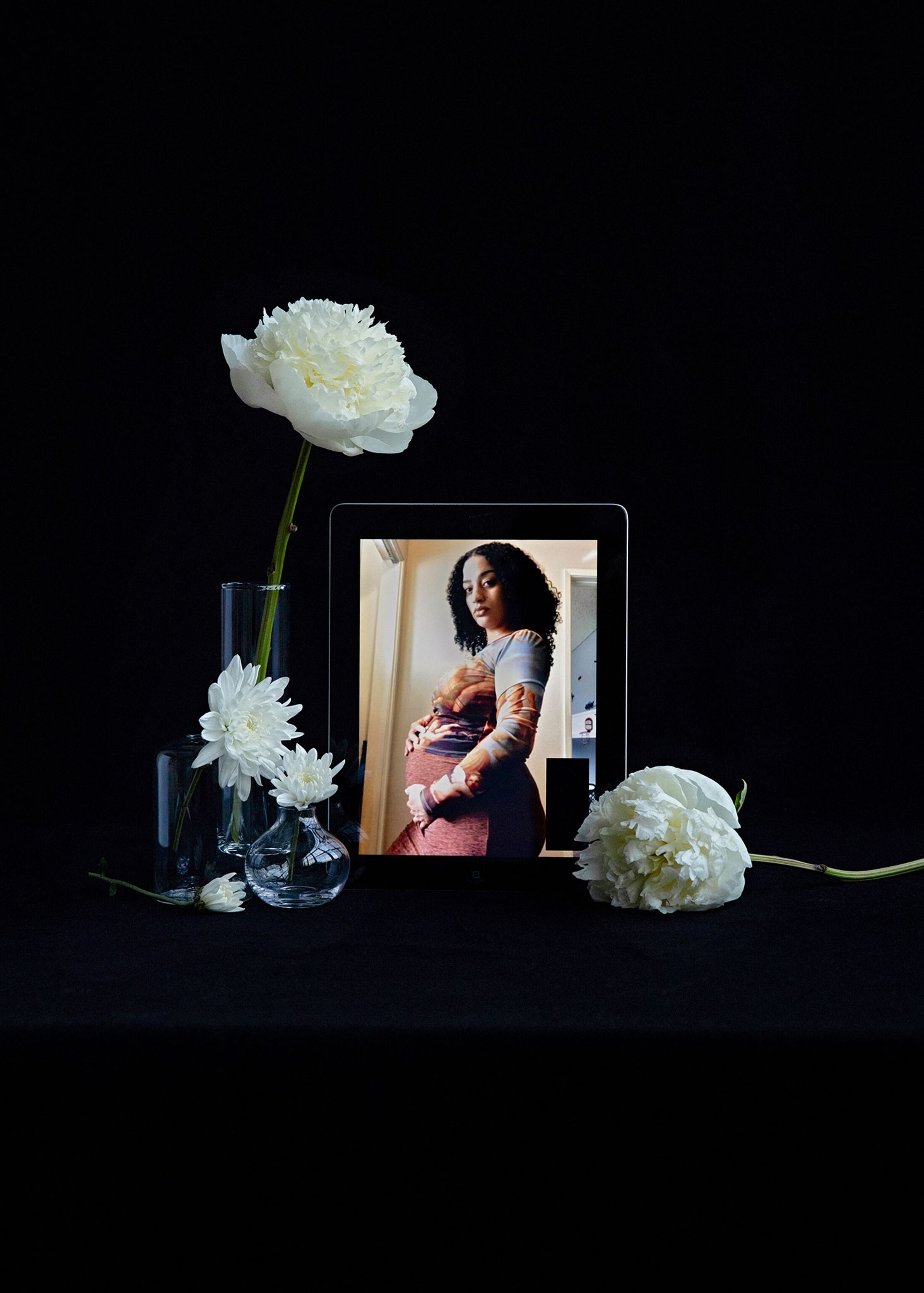
For the first five years of their marriage, Christiana and Michael Neazer struggled to have a child. Christiana, a 30-year-old nursing student, planned to start fertility drugs the week her husband fell so sick with COVID-19 that he landed in the ICU. From their home, she used social media to rally their family and friends in prayer. The updates from Mike’s doctors were concerning: His nose was bleeding, his throat was sore, and his airway was dry from supplemental oxygen. He was a strong guy who worked in security and, at 6’1”, was nicknamed Big Mike—but he was growing weaker.
As Mike fought for his life, Christiana took a home pregnancy test. Then another. And another and another. After six tests—all positive—she texted Mike a selfie of the two of them, along with a photo of the positive tests. On it she wrote: “THE BEST HOOD IS FATHERHOOD! BABY NEAZER COMING FEBRUARY / MARCH 2021 FIGHT DADDY, FIGHT!”


He texted back telling her not to joke about that. She replied that she wasn’t kidding; she was six weeks pregnant and scheduled for an ultrasound later that day. He was too tired to continue the exchange. By July 10, his texts made clear his struggle.
Mike died on July 15. His and Christiana’s baby is due on March 15, their sixth wedding anniversary.
Fiana Garza Tulip; Brooklyn, New York
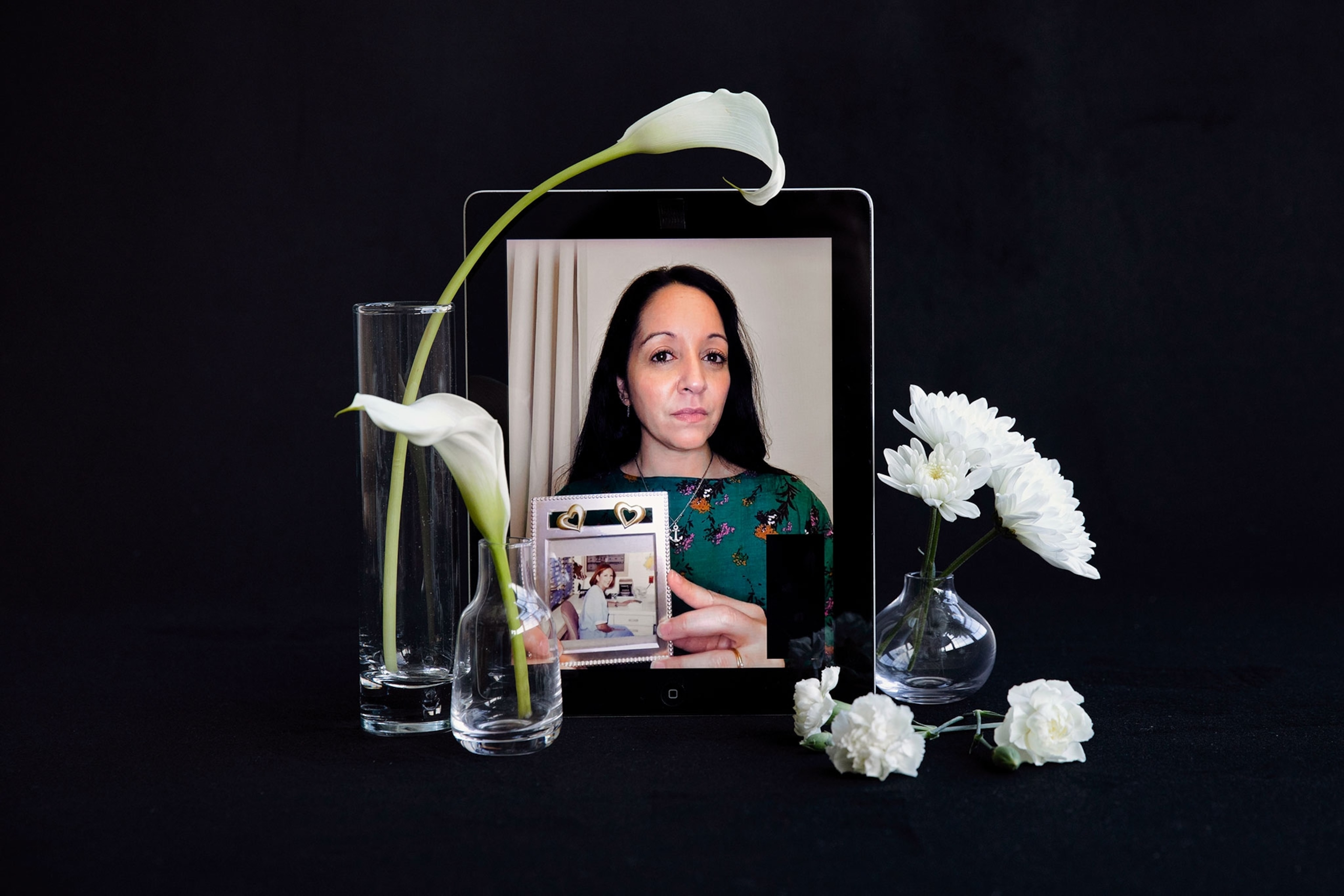
In March, Isabelle Odette Papadimitriou, a 64-year-old respiratory therapist in Dallas, booked a flight to Brooklyn to visit her daughter, Fiana Garza Tulip, and Lua, her then eight-month-old granddaughter.
After their visit, Isabelle returned home and continued going to work in a Dallas rehab unit, where she found herself on the front lines of the pandemic. Masks and other protective equipment were in short supply, but in texts to Fiana she insisted there was no need to worry. “She told me, ‘I’m strong as an ox. I’ll be fine.’ And I believed her,” Fiana says.
Then, in July, Fiana heard from her brother that Isabelle had started feeling sick. She texted with her mother, who assured her she was journaling her symptoms and doing all she could to hydrate and avoid the hospital. “I am a very strong woman I am one that will make it through,” Isabelle texted on Thursday, July 2.

The next night, Isabelle began calling her son from her bedroom. She was getting worse. He called an ambulance. On the way to the hospital, her pulse flatlined. Paramedics revived her, but just a week after her COVID-19 symptoms began, Isabelle fell into a vegetative state. She died on July 4, one of her favorite holidays.
Two days later, Fiana received a package from her mother. Inside the box was a pair of frilly pink sandals for Lua. Isabelle had ordered them a few days earlier, when she was sick in bed.
“She had seen a photo where Lua was barefoot. So she wanted to make sure she had shoes,” says Fiana, who founded the Facebook group I Lost My Loved One(s) to COVID-19. “Every day at 7 p.m. we would clap for the healthcare workers. I didn’t realize I was clapping for my mom.”
Kelsey Ellis; Portland, Oregon

Last March, Audrey Ellis, a nurse in Denver, visited her twin sister Kelsey, in Portland, to celebrate their 29th birthday. Audrey had a cough she couldn’t shake, and after their birthday brunch and a trip to a national park, Kelsey noticed exhaustion in her sister’s eyes and a blueness in her lips. Kelsey drove Audrey to an urgent care facility that day, and to the emergency room the next. Audrey was admitted on March 18, the same day the hospital implemented a no-visitor policy.
“We might not be able to come in the room but WE ARE HERE FOR YOU,” Kelsey texted from the parking lot. “Thank you wombie,” Audrey replied.
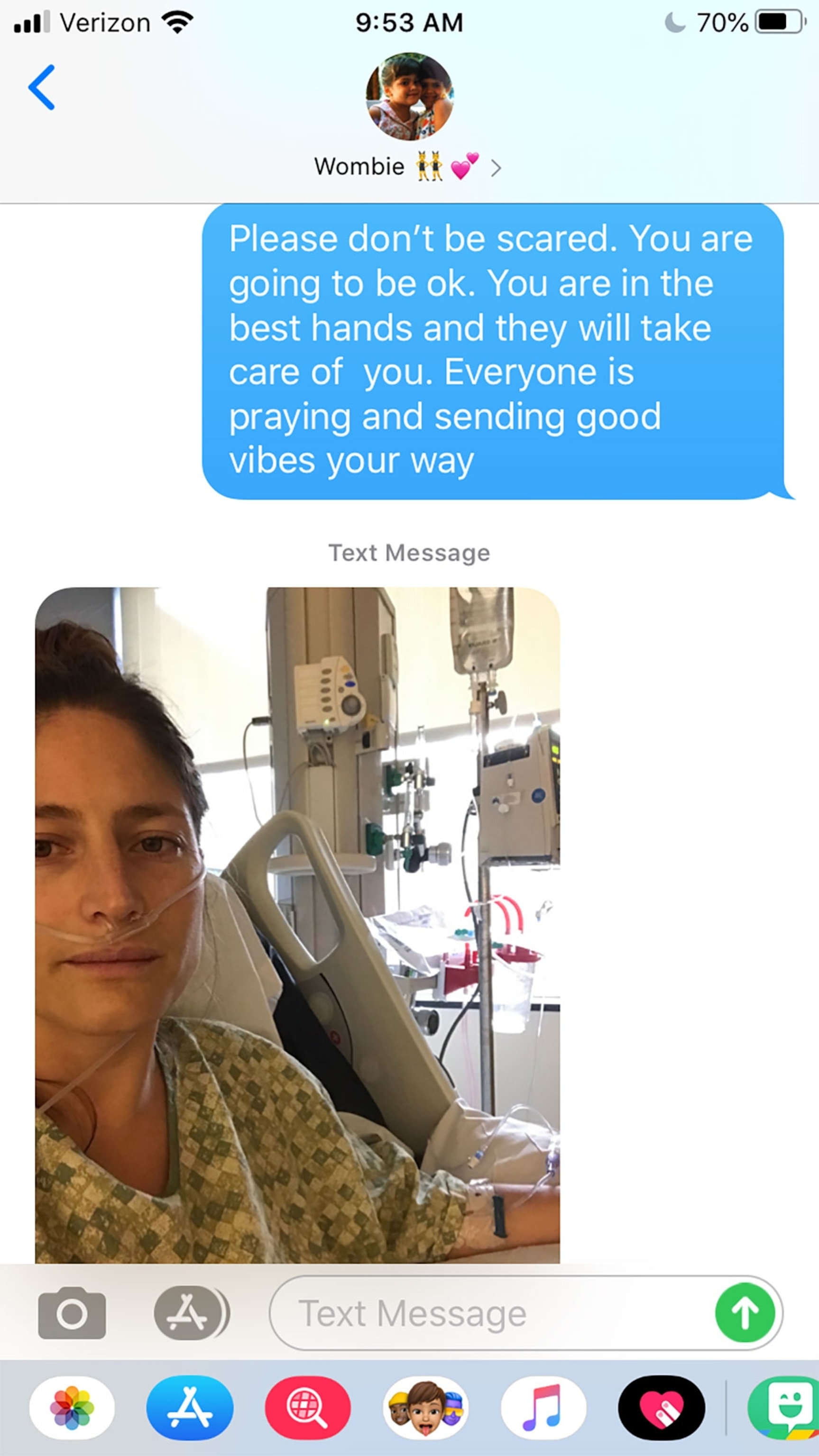

Over the next three chaotic, terrifying days, Kelsey and her parents remained glued to their phones. Audrey maintained a calmness in her texts. She translated medical jargon and expressed gratitude for a nurse who made her a strawberry smoothie. She asked for a Netflix login so she could watch Tiger King and joked about her boyfriend’s sweet get-well-soon Instagram posts. She sent selfies showing the good care she was receiving, and the tangle of tubes she was hooked up to as doctors ran tests. She had pneumonia, and doctors needed to intubate and drain fluid accumulating around her heart.
Despite their best efforts, Audrey died on March 22. The cause of death was listed as heart failure. Kelsey picked up her ashes at a contactless drive-through. There was no autopsy. No immediate funeral.
“People were sending flowers, but everyone’s so afraid to hug,” Kelsey says. “We have a big family, and we haven’t been able to be together in person and just cry. The traditional forms of closure are definitely denied to me and other people, which lends to the false belief that none of this is real.”
Darcey Cobbs-Lomax and Dana Cobbs; Connecticut
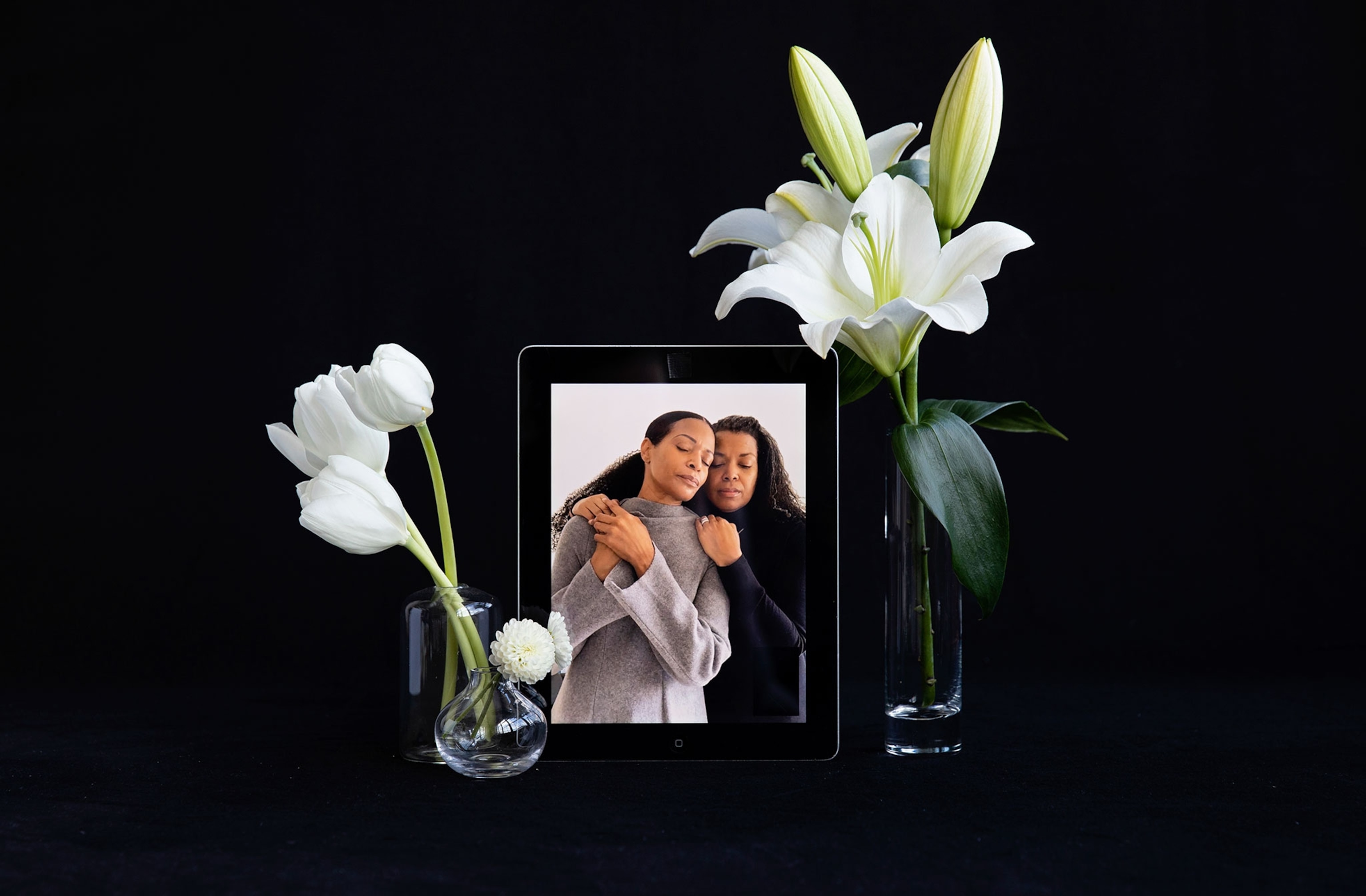
“Unlock your door,” Darcey Cobbs-Lomax texted her 73-year-old father, Morgan Cobbs, Jr., on Friday, April 3. He had been fighting a cough, but was still trying to do things around the house—to take care of his 95-year-old mother and manage a renovation project. Now his voice sounded sicker, so Darcey called an ambulance. By the time she and her sister Dana Cobbs arrived at their father’s home, paramedics were outside in the rain, suiting up in protective clothing to meet Morgan at his front door.
The next day, Dana and Darcey noticed that Morgan’s mother, Evelyn, looked weary in her rocking chair. When she started vomiting, they called an ambulance. The same paramedics who had come for their father the day before now rushed their grandmother to the ICU.
Over the next week, the sisters were tethered to their phones, seeking and receiving updates. Darcey texted her father get-well video messages from her four kids.
On April 11, Darcey stopped by Evelyn’s old house and went through her neat belongings. Among them: her father’s varsity letter from his basketball days. She texted Morgan a picture.


Then, as Darcey was walking down the stairs of her grandmother’s house, her father called. He needed to be intubated. Darcey fell to her knees and prayed.
Nine days later, Darcey and Dana’s grandmother—their wry, elegant Meme Evelyn—died from complications from COVID-19. A week later, their father passed away, with a nurse holding his hand. The image of their father in his sweatshirt walking toward the paramedics in masks and hazmat suits will never lift. Morgan loved to travel, and they thought they’d enjoy many more family trips together. “I always thought he would come home,” Dana says.
Todd Bailey; Mesa, Arizona
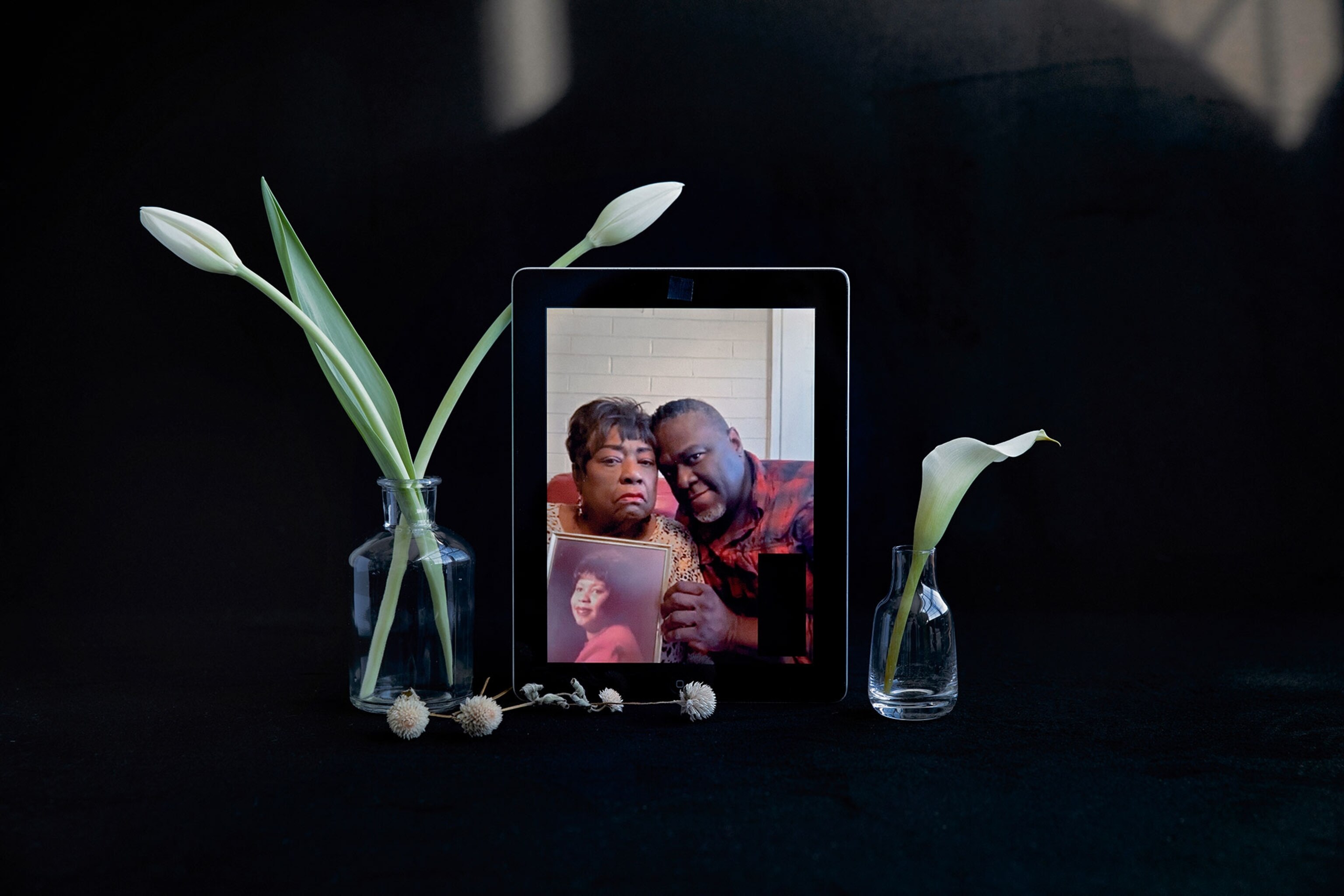
To Todd Bailey, 53, Kathy Jones was always his “cool aunt.” Kathy, the youngest of his mother’s four sisters, took him to his first concert and rooted for him when he left Arizona to live in New York and San Francisco. Then she opened her door to him when he moved back to be closer to his mother.
In late June, Kathy, 64, started feeling sick with what she thought was a urinary tract infection. But at the hospital, she tested positive for COVID. She texted that she felt terrible for potentially exposing her family, and sent Todd links to testing sites, urging him to go.
As Kathy grew sicker, Todd and his mother, Joyce, tested positive, too. He was OK, but his mother could barely stand. She felt like her whole body had a migraine. He called an ambulance for her the same day Kathy took a turn for the worse.

With his mom in one ICU and Aunt Kathy in another four miles down the road, Todd camped out on the couch and tried to manage a barrage of calls from the hospitals, as well as texts and food drop-offs from loved ones. His mother was critically ill, but she was also the power of attorney for Kathy. So from her ICU bed, she tried to communicate with her sister’s doctors.
In Kathy’s last text to Todd, she asked for her debit card. He hates that she was thinking about finances in her final moments of lucidity. Amid the confusion, he texted her a few final times but got no response. Kathy died on July 6.
“She had survived all these other things, and in nine days COVID came and took her from us,” Todd says. “More than once she mentioned the horror, how awful it would be to go exactly the way she did.”
This story was updated on February 22, 2021 to reflect the latest COVID-19 death toll in the United States.